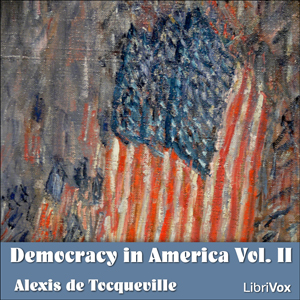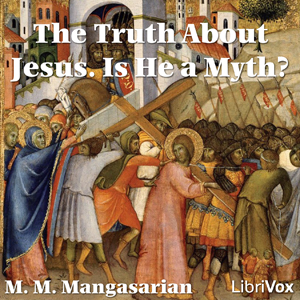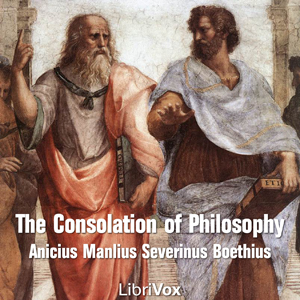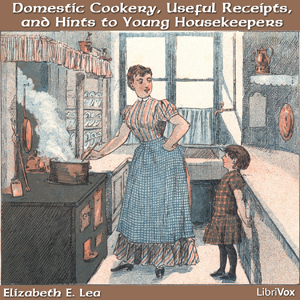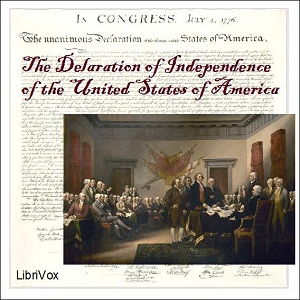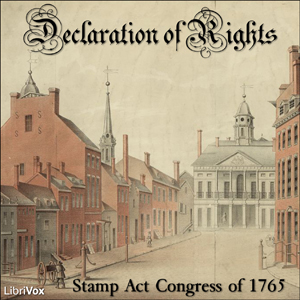- De Tocqueville's Preface To Vol II
- Part I: De Tocqueville's Preface To The Second Part: part1,chapter1: Philosophical Method Among the Americans; p1c02: Of The Principal Source Of Belief Among Democratic Nations
- p1c03: Why The Americans Display More Readiness And More Taste For General Ideas Than Their Forefathers, The English; 1.04: Why The Americans Have Never Been So Eager As The French ForGeneral Ideas In Political Matters
- 1.05: Of The Manner In Which Religion In The United States Avails Itself Of Democratic Tendencies; 1.06: Of The Progress Of Roman Catholicism In The United States
- 1.07: Of The Cause Of A Leaning To Pantheism Amongst Democratic Nations; 1.08: The Principle of Equality Suggests to the Americans the Idea of the Indefinite Perfectibility of Man
- 1.09: The Example of the Americans Does Not Prove That a Democratic People Can Have No Aptitude and No Taste for Science, Literature, or Art; 1.10: Why the Americans Are More Addicted to Practical Than to Theoretical Science
- 1.11: The Spirit in Which the Americans Cultivate the Arts; 1.12: Why the Americans Raise Some Monuments So Insignificant, and Others So Important
- 1.13: Literary Characteristics of Democratic Ages; 1.14: The Trade of Literature
- 1.15: The Study of Greek and Latin Literature Peculiarly Useful in Democratic Communities; 1.16: The Effect of Democracy on Language
- 1.17: Some of the Sources of Poetry among Democratic Nations; 1.18: Of the Inflated Style of American Writers and Orators
- 1.19: Some Observations on the Drama amongst Democratic Nations; 1.20: Characteristics of Historians in Democratic Ages
- 1.21: Of Parliamentary Eloquence in the United States
- Part 2: Influence of Democracy on the Feelings of Americans 2.01: Why Democratic Nations Show a More Ardent and Enduring Love of Equality than of Liberty; 2.02: Of Individualism in Democratic Countries
- 2.03: Individualism Stronger at the Close of a Democratic Revolution than at Other Periods; 2.04: That the Americans Combat the Effects of Individualism by Free Institutions
- 2.05: Of the Use which the Americans Make of Public Associations in Civil Life; 2.06: Of the Relation between Public Associations and the Newspapers
- 2.07: Connection of Civil and Political Associations; 2.08: The Americans Combat Individualism by the Principle of Interest Rightly Understood
- 2.09: That the Americans Apply the Principle of Interest Rightly Understood to Religious Matters; 2.10: Of the Taste for Physical Well-Being in America
- 2.11: Peculiar Effects of the Love of Physical Gratifications in Democratic Ages; 2.12: Causes of Fanatical Enthusiasm in Some Americans
- 2.13: Causes of the Restless Spirit of Americans in the Midst of Their Prosperity; 2.14: Taste for Physical Gratifications United in America to Love of Freedom and Attention to Public Affairs
- 2.15 That Religious Belief Sometimes Turns the Thoughts of the Americans to Immaterial Pleasures; 2.16: That Excessive Care of Worldly Welfare May Impair That Welfare
- 2.17: That in Times Marked by Equality of Conditions and Sceptical Opinions, It Is Important to Remove to a Distance the Objects of Human Actions; 2.18: That Amongst the Americans All Honest Callings Are Honorable
- 2.19: That Almost All the Americans Follow Industrial Callings; 2.20: That Aristocracy May Be Engendered by Manufactures
- 3:21 Why Great Revolutions Will Become More Rare , 3:22 Why Democratic Nations Are Naturally Desirous Of Peace, And Democratic Armies Of War
- 3:23 Which Is The Most Warlike And Most Revolutionary Class In Democratic Armies?. 3:24 Chapter XXIV: Causes Which Render Democratic Armies Weaker Than Other Armies At The Outset Of A Campaign, And More Formidable In Protracted Warfare
- 3:25 Of Discipline In Democratic Armies . 3.26 Some Considerations On War In Democratic Communities
- Book 3 : Influence of Democracy on Manners, Properly So Called 3.01: That Manners Are Softened as Social Conditions Become More Equal; 3.02: That Democracy Renders the Habitual Intercourse of the Americans Simple and Easy
- 3.03: Why the Americans Show So Little Sensitiveness in Their Own Country, and Are So Sensitive in Europe; 3.04: Consequences of the Three Preceding Chapters
- 3.05: How Democracy Affects the Relation of Masters and Servents; 3.06: That Democratic Institutions and Manners Tend to Raise Rents and Shorten the Terms of Leases
- 3.07: Influence of Democracy on Wager; 3.08: Influence of Democracy on Kindred
- 3.09: Education of Young Women in the United States; 3.10: The Young Woman in the Character of a Wife
- 3.11: That the Equality of Conditions Contributes to the Maintenance of Good Morals in America; 3.12: How the Americans Understand the Equality of the Sexes
- 3.13: That the Principle of Equality Naturally Divides the Americans into a Small Number of Private Circles; 3.14: Some Reflections on American Manners
- 3.15: Of the Gravity of the Americans, and Why It Does Not Prevent Them from Often Committing Inconsiderate Actions; 3.16: Why the National Vanity of the Americans Is More Restless and Captious than That of the English
- 3.17: That the Aspect of Society in the United States Is at Once Excited and Monotonous; 3.18: Of Honor in the United States and in Democratic Communities
- 3.19: Why So Many Ambitious Men and So Little Lofty Ambition Are to Be Found in the United States; 3.20: The Trade of Place-Hunting in Certain Democratic Countries
- Book 4: Influence of Democratic Opinions on Political Society 4.01: That Equality Naturally Gives Men a Taste for Free Institutions; 4.02: That the Notions of Democratic Nations on Government Are Naturally Favorable to the Concentration of Power
- 4.03: That the Sentiments of Democratic Nations Accord with Their Opinions in Leading Them to Concentrate on Political Power; 4.04: Of Certain Peculiar and Accidental Causes which Either Lead a People to Complete Centralization of Government, or Which Divert Them from It
- 4.05: That Amongst the European Nations of Our Time the Power of Governments Is Increasing, although the Persons Who Govern Are Less Stable; 4.06: What Sort of Despotism Democratic Nations Have to Fear
- 4.07: Continuation of the Preceding Chapters; 4.08: General Survey of the Subject
Democracy in America was published in two volumes, the first in 1835 and the second in 1840. It is a classic work on the United States in the 1830s and its strengths and weaknesses as seen from a European point of view. It is also regarded as a pioneering work of sociology. (Summary based on Wikipedia)
There are no reviews for this eBook.
There are no comments for this eBook.
You must log in to post a comment.
Log in

